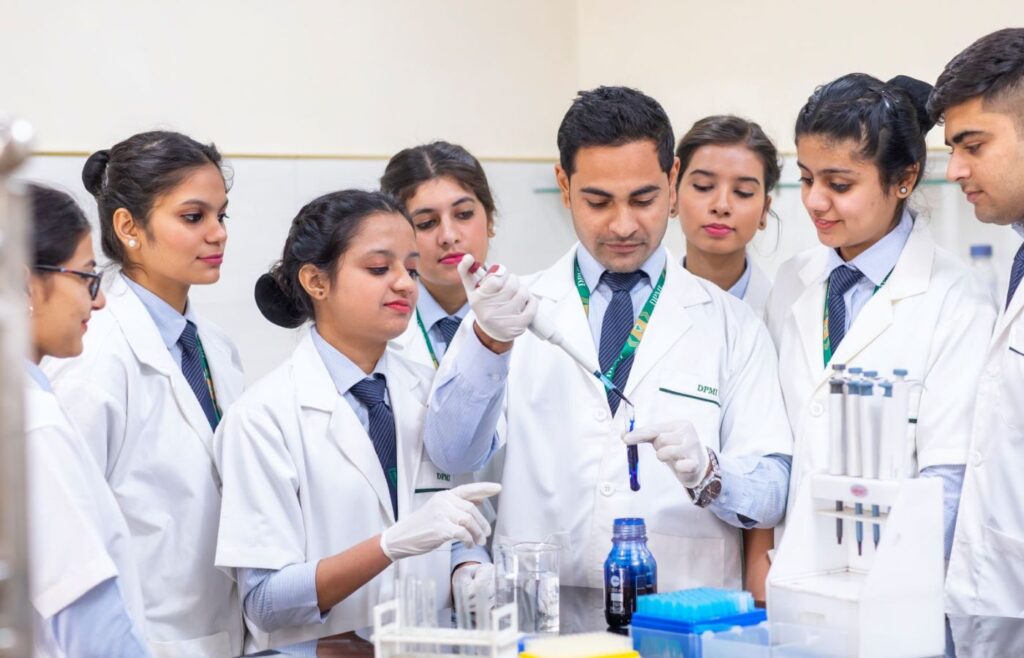Embarking on a medical lab technician internship is an exciting milestone for any aspiring diagnostician. Whether you’ve just completed your MLT training after 12th or are nearing the end of your diploma program, the transition from classroom to clinic can feel daunting. Drawing inspiration from the structured programs at Diagnopein Paramedical (www.dignopeinparamedical.com), here are actionable MLT internship tips to help you shine during your clinical lab internship and build a strong foundation for your career.
1. Understand the Role: What to Expect in a Lab Technician Internship
Before your very first day, familiarize yourself with the scope of a lab technician internship. Typical responsibilities include sample collection, proper labeling, preparing reagents, and basic instrument operation. Review the core modules of your MLT internship for students handbook and Diagnopein’s lab manuals, so that you enter the lab with clear expectations of tasks like centrifugation, pipetting, and quality checks.
2. Master Essential Diagnostic Lab Technician Skills
A successful internship hinges on strong diagnostic lab technician skills. Key proficiencies include:
- Accurate sample handling: Ensure proper identification and avoid cross-contamination.
- Instrument calibration: Learn to set up and validate hematology analyzers or biochemistry spectrophotometers.
- Basic troubleshooting: Recognize error codes and perform routine maintenance.
Invest time reviewing Diagnopein Paramedical’s online resources on equipment protocols to deepen your technical know-how.
3. Prioritize Medical Lab Practical Tips
While theory provides context, medical lab practical tips are what make you indispensable. Some golden rules:
- Label everything: Date, time, patient ID, and test type.
- Follow SOPs religiously: Standard Operating Procedures guard against errors.
- Maintain a clean workspace: Disinfect benches before and after each session.
Small habits like these, emphasized in Diagnopein’s simulation labs, reduce sample rejection rates and boost lab efficiency.
4. Seek Out the Best Internships for MLT Students
Not all internships are created equal. Look for placements that offer rotational exposure across microbiology, hematology, and clinical biochemistry. Diagnopein Paramedical’s tie-ups with multi-specialty diagnostic centers ensure interns rotate through high-volume sections, making their medical lab internship experience rich and varied. When evaluating opportunities, prioritize:
- Structured mentorship programs
- Hands-on access to automated analyzers
- Regular feedback and performance reviews
5. Cultivate Professional Communication
As an intern, you’ll liaise with pathologists, phlebotomists, and administrative staff. Effective communication is part of the skills for lab technician toolkit:
- Clarify doubts immediately to avoid procedural errors.
- Document observations in lab logs—clear, concise notes help senior technicians track progress.
- Communicate professionally with patients during sample collection; empathy builds trust and compliance.
6. Embrace Lab Technician Practical Training Opportunities
Internships should be learning-intensive. Volunteer for extra responsibilities such as running quality control checks or participating in EQA (External Quality Assessment) programs. Diagnopein’s advanced training modules encourage interns to lead mini-projects on topics like reagent validation or turnaround-time analysis. Such initiatives not only polish lab technician practical training but also make you stand out on your résumé.
7. Reflect on Your Medical Lab Internship Experience
Keep a daily journal of challenges faced and solutions applied. This practice reinforces learning and provides material for internship reports. Reflect on:
- Which tests gave you confidence?
- Where did you need more guidance?
- What safety protocols were most critical?
By the end of your medical lab internship, this reflective log becomes an invaluable resource during job interviews, showcasing your ability to learn and adapt.
8. Leverage Diagnopein’s Support for Ongoing Growth
Even after your internship ends, continue tapping into Diagnopein Paramedical’s alumni network for workshops on trending paramedical courses and certification in specialized techniques like PCR or flow cytometry. Regularly update your diagnostic lab technician skills to stay current with industry advances and prepare for roles in research labs, blood banks, or hospital diagnostics.
Conclusion
Success in your first lab posting isn’t just about knowing techniques—it’s about cultivating professionalism, continuous learning, and proactive engagement. By following these MLT internship tips, you’ll transform a standard clinical lab internship into a springboard for a fulfilling career as a medical laboratory technician. Remember, every sample processed and every protocol mastered brings you one step closer to becoming a trusted diagnostician.

